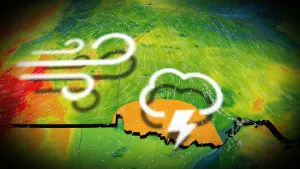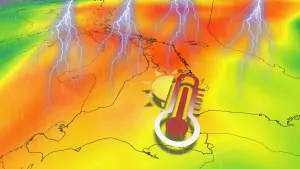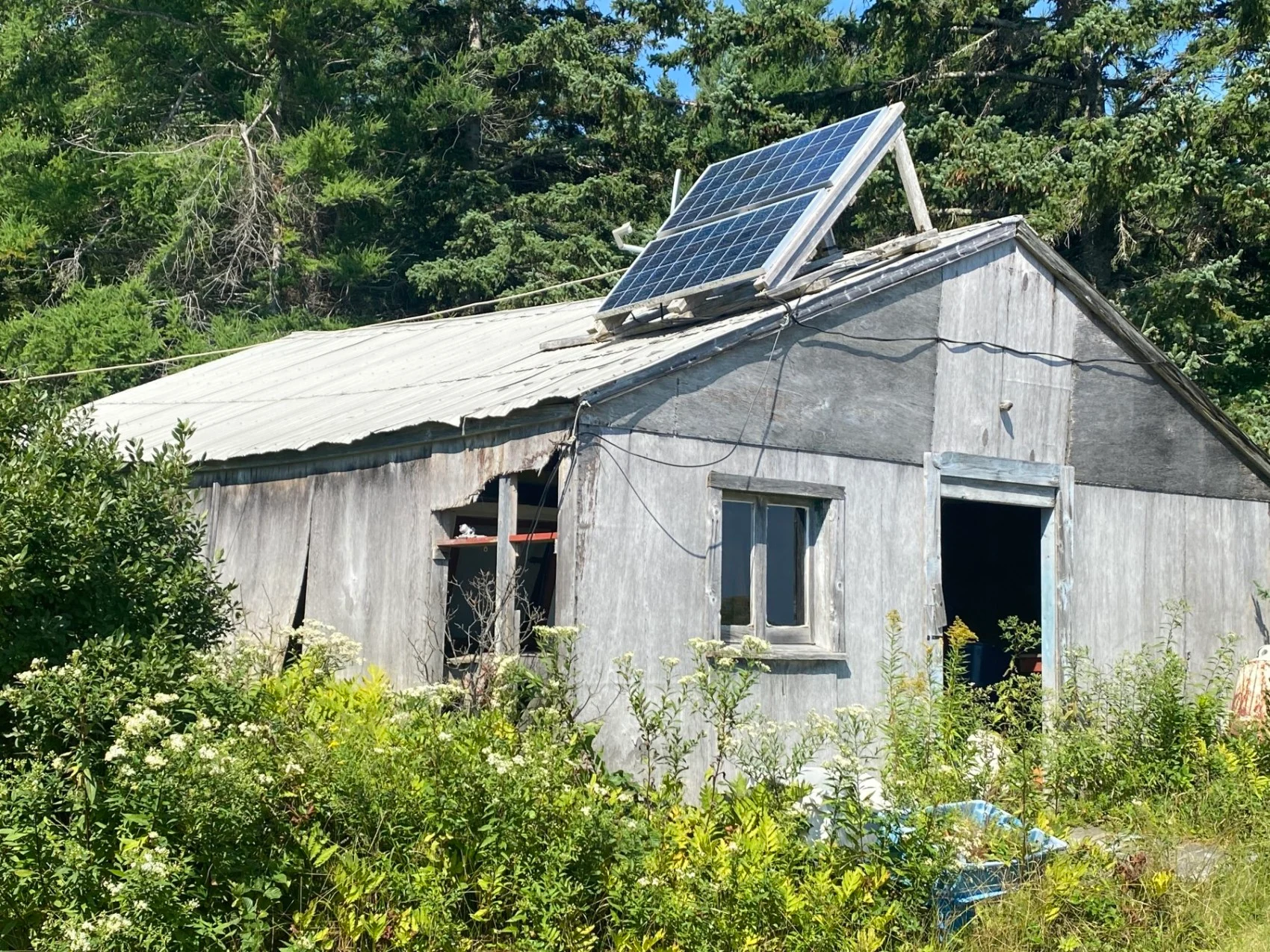
Solar energy is allowing residents to repopulate this off-grid island
Life on an island with no connection to a power grid is becoming more feasible thanks to a steep decline in the cost of solar panels over the past 20 years. Lorne Matheson has deep family roots on Nova Scotia’s Pictou Island and says he’d love to see the population increase. He and partner Wendy Foley are using solar panels to help run the island’s only store along with a vineyard and wooden tent campground.
In 2015, Nova Scotia’s Pictou Island was home to only eight full-time residents, all of whom had to endure year-round life on the tiny patch of land without any connection to a mainland power grid. That year, Wendy Foley and Lorne Matheson founded Pictou Island Wooden Tents as a way to attract visitors to the island, in the hopes that maybe some of those folks would stay.
"The island was dying,” Matheson told The Weather Network. “Wendy and I took some steps that hopefully helped. We opened a store and had ice which is a really valuable commodity on an island like this in the Summer for sure.”
According to Matheson, the census of 1931 had the population at 212. In 1999, there were 37 full time residents. By 2015, it was back down to only eight full-time residents spending their time on the island, which is located about halfway between New Glasgow, N.S. and the southern shores of P.E.I.
That’s when he decided to act and open Pictou Island Wooden Tents with Foley — a camping site where most of the essentials (including lodging) is conveniently provided for you. The ferry that leaves from Caribou, N.S. takes passengers only, so if you’re travelling to the island you have to carry everything you need.
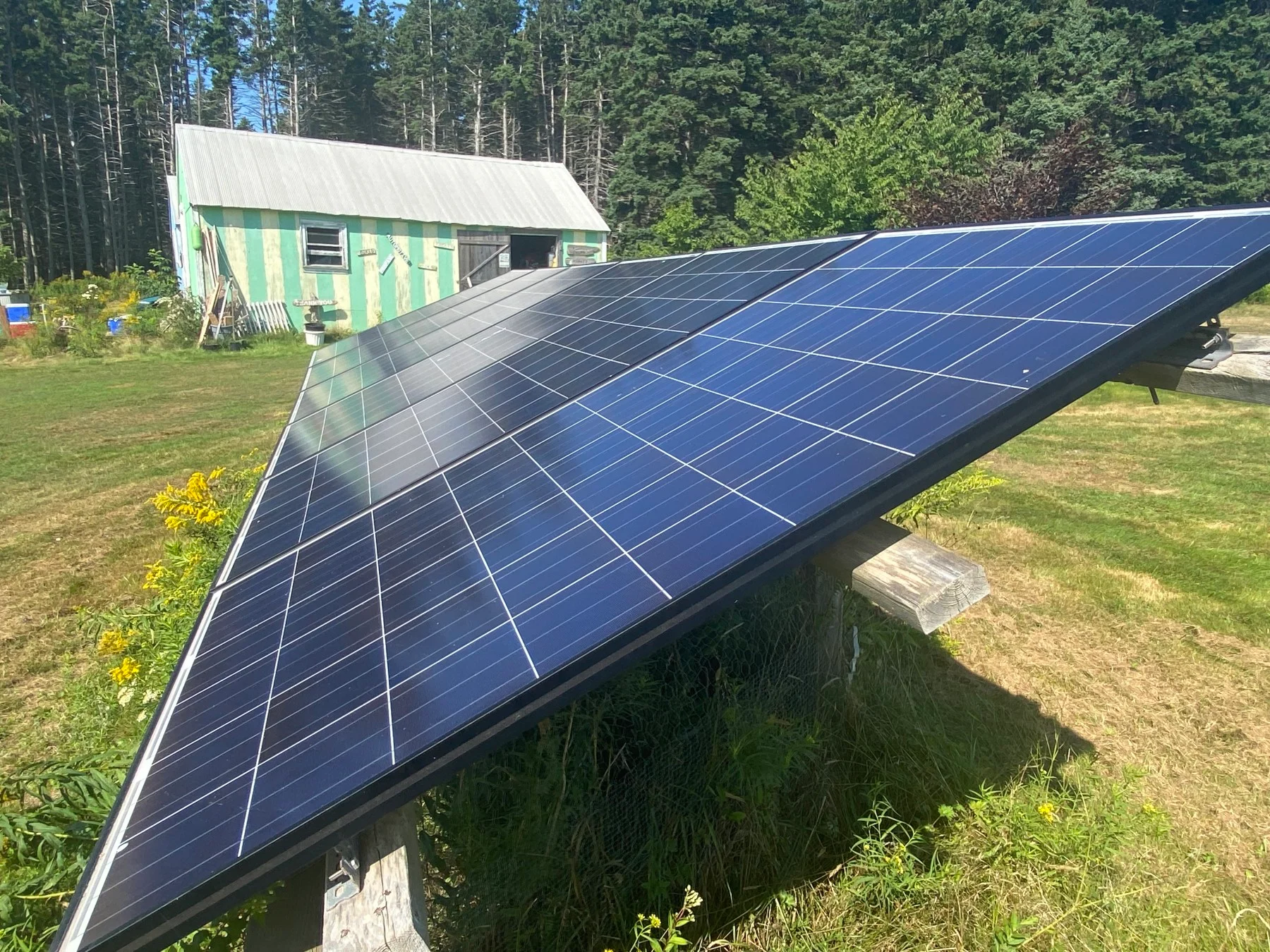
These solar panels generate energy for Pictou Island’s only store. (Nathan Coleman)
Today, around 12 to 14 people live on the island year-round. The island is only 9.5 kilometres long and 2.5 kilometres wide, but there are no cars on it. The wooden tents operation means you don’t have to lug all the gear.
Thanks to the site’s solar setup, visitors also have access to ice. If it gets cloudy for too long, they have to run a generator to charge batteries that will keep everything from melting.
See also: Sea level rise threatening Sable Island’s wild horses and unique biodiversity
Connecting power from the mainland has been attempted in the past, but sea cables would wash away or get ripped apart in the spring.
The first solar panels Matheson bought in 2001 were 1200-watt panels that cost $1,200 each. Nowadays, you can get 375-watt panels for $300-$400 dollars, according to Matheson. He's got six panels now for his freezer fridge and radios, but not heat. “I put solar panels up in 2002 which still kick out the same electricity as they kicked out 20 years ago, so it's pretty reliable," he said.
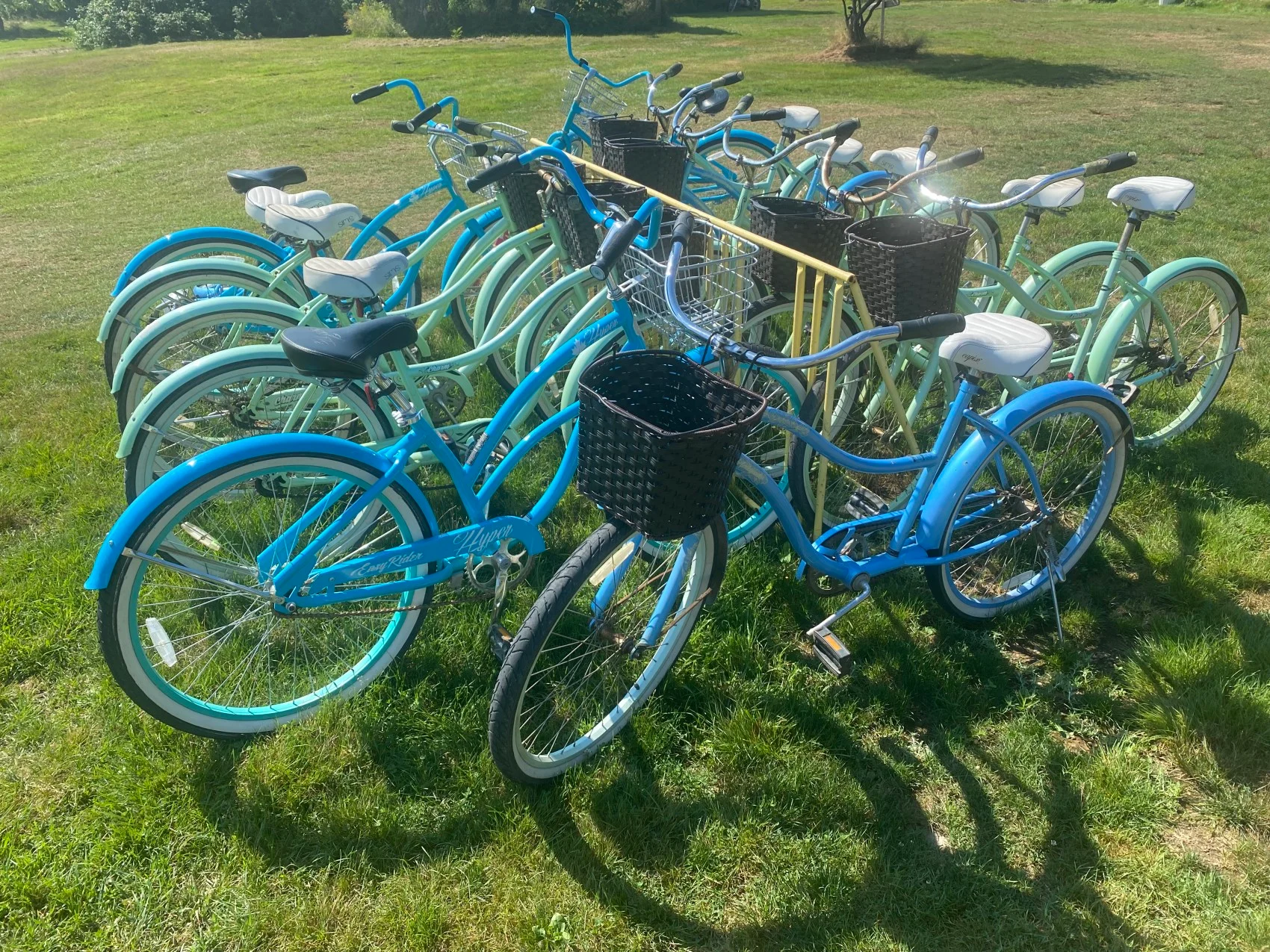
You can’t bring your vehicle to the island on the ferry but you can rent a bicycle for the day to get around and explore. (Nathan Coleman)
Matheson says conservation is key when it comes to solar energy. He and Wendy do their laundry on sunny days to make the most of it.
"You can't do toasters or blow dryers, like a blow dryer is 1,700 watts, people don't realize what that means. A lightbulb used to be 100 watts, now they're like six watts, and a toaster the same. We've all got propane ovens and propane hot water heaters so everything else we do through solar panels," he said.
As for their island repopulation plan, it’s working pretty well: As of last year there were 22 new cottages being built and this summer there's another half-dozen being built.
You can see Nathan Coleman’s full interview with Matheson and trip to Pictou Island in the video above.
Thumbnail image: A modern solar panel rests on the roof of an old fishing shack along the coast in Pictou Island, Nova Scotia. (Nathan Coleman)









